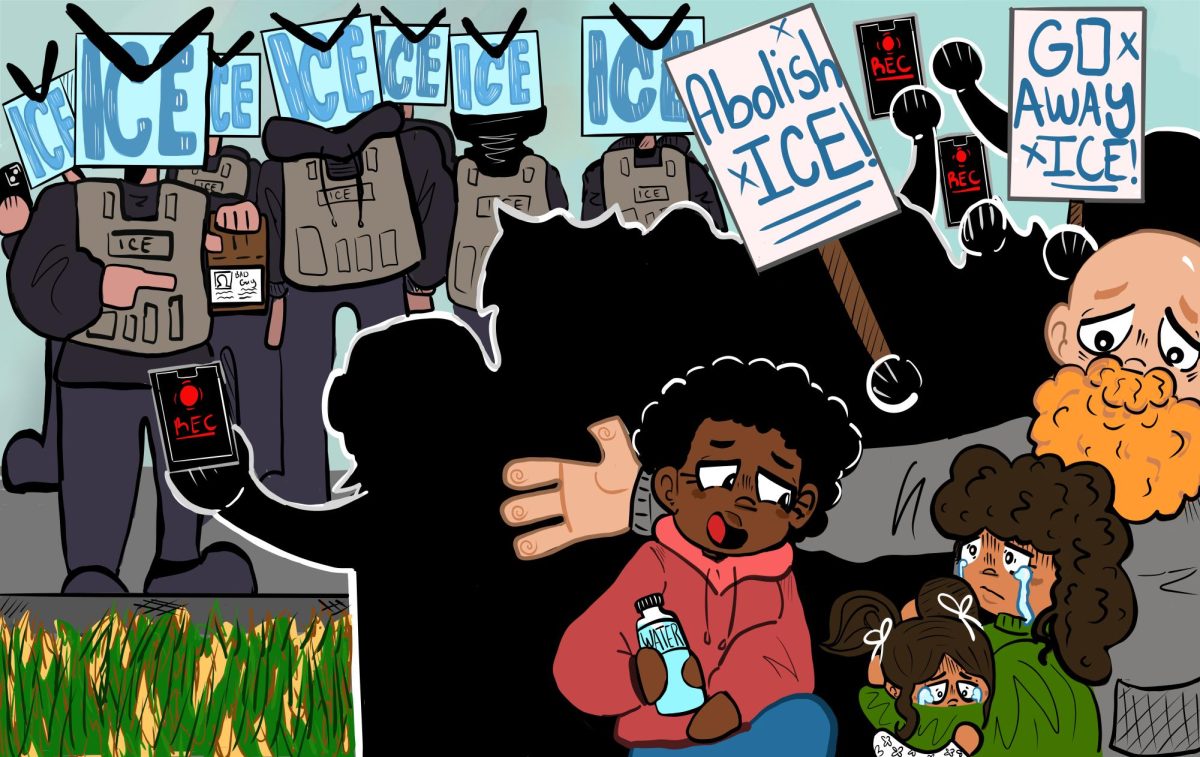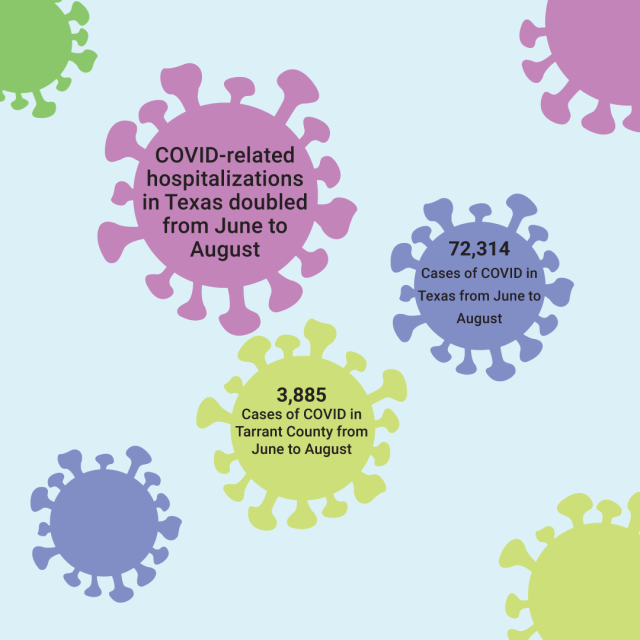OLLA MOKHTAR
campus editor
olla.mokhtar@my.tccd.edu
According to the CDC, COVID-19 hospitalizations have increased at a rate of 27% and 35% in Tarrant County and Dallas County respectively as of Sept. 11.
In an Aug. 30 article, the CDC said Pirola, a new variant, has been detected in a small number of samples in several countries, including the U.S. This allows students to remember quarantine, vaccines and mental health statuses that COVID-19 infiltrated.
TCC stopped COVID-19 protocols regarding reporting tracking and college notifications on March 23, 2022. However, William Driver, director of emergency services said that while nothing is planned at the moment, the college would certainly listen to its community partners such as Tarrant County Public Health.
This is to determine if TCC would coordinate vaccines and testing sites as long as these actions are conducive with campus academic and logistical factors.
“TCC has a Pandemic Annex as part of our Emergency Operations plan that address actions to include but not limited to providing masks and hand sanitizers for students, faculty, staff and visitors during the influenza season or outbreak as part of mitigation and preparedness actions,” he said. “The TCC Department of Emergency Management participates in local, regional and state conference calls to coordinate information and actions.”
While TCC has an action plan for the possibility of another COVID-19 wave, NW speech instructor Deanna Roskop believes that some of her students were, and still are, wary of the aftereffects of COVID-19.
“I just think it really hurt a lot of people and hurt our education system,” she said. “So for me, seeing the increase in COVID is more about the fear of what that’s going to do to people mentally. For fear of isolation, I don’t want that to happen again. My hope is that we’re able to still stay working and in school and having that social interaction that we need.”
As a speech instructor, she has noticed her students repeatedly mentioned their experiences with COVID-19 as something that significantly impacted them in their introduction speeches.
“Again, the rate of depression, the rate of anxiety skyrocketed,” she said. “There’s so much of it that’s relationship-oriented, and so much of it that they need to be speaking in front of a live audience and have that experience. So, for me, it would be really hard to go back to that.”
With many of her family members passing away from COVID-19, TR student Carmen Gonzalez is one of many people in the community who were personally affected. Hearing about the recent uptick in COVID-19 cases reminded her of her experience with it.
“I’ve already experienced it. And so, emotionally, I feel like it’s gonna be hard, but it’s not something that you can’t overcome,” she said.
She believes that extends to taking the new vaccine the CDC announced at the end of August.
As someone who was homeschooled, TR student J.W. Milton said it didn’t affect him as much, but as a Christian, he believed taking any COVID-19 related vaccine, whether it be released to the public or not, went against his religious beliefs.
“There’s a verse in First Corinthians that says, the body is the temple of the Holy Spirit,” he said. “And for me, as a Christian, wanting to glorify Christ, I don’t want to put anything in my body that I don’t understand or comprehend. So, I would rather know about it before I put it in.”
Although Gonzalez and many students don’t like the prospect of rising COVID-19 cases, she does have some advice regarding it.
“Your own mental health is really something that you should focus on just because it affects everything around you in your daily life. My advice would just be to keep a journal and just to write everything out and socialize,” she said.



































